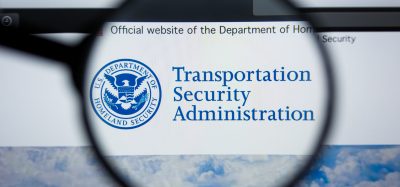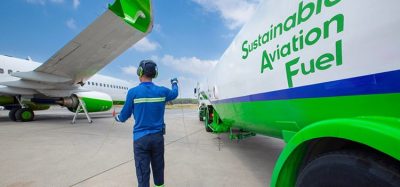Estonia and Latvia removed from UK travel corridors list
- Like
- Digg
- Del
- Tumblr
- VKontakte
- Buffer
- Love This
- Odnoklassniki
- Meneame
- Blogger
- Amazon
- Yahoo Mail
- Gmail
- AOL
- Newsvine
- HackerNews
- Evernote
- MySpace
- Mail.ru
- Viadeo
- Line
- Comments
- Yummly
- SMS
- Viber
- Telegram
- Subscribe
- Skype
- Facebook Messenger
- Kakao
- LiveJournal
- Yammer
- Edgar
- Fintel
- Mix
- Instapaper
- Copy Link
Posted: 27 November 2020 | International Airport Review | No comments yet
Despite Estonia and Latvia being removed, a number of Pacific Islands, Bhutan, Timor-Leste, Mongolia and Aruba have been added to the UK government’s travel corridors list.


People arriving in the UK from Estonia and Latvia from 28 November 2020 will need to self-isolate for two weeks as the countries are removed from the UK government’s travel corridors list.
Data from the Joint Biosecurity Centre (JBC) and Public Health England (PHE) has indicated a significant change in both the level and pace of confirmed cases of coronavirus in those destinations, leading to UK Ministers removing these from the current list of travel corridors.
However, a number of Pacific Islands (Samoa, Kiribati, Federated States of Micronesia, Tonga, Vanuatu and Solomon Islands), Bhutan, Timor-Leste, Mongolia and Aruba have been added to the government’s travel corridor list following a decrease in risk from coronavirus in these destinations.
From 28 November 2020, passengers arriving into the UK from these destinations will no longer need to self-isolate so long as they haven’t been in or transited through any other non-exempt countries in the 14 days preceding their arrival.
Following advice from the Chief Medical Officer, the travel ban on Denmark introduced on 7 November 2020 will be lifted. However, Denmark will not be added to the travel corridors list to further mitigate any potential risk to the UK and ensure that the UK public is protected. The COVID-19 mink variant in Denmark is receding with the Danish health authorities now considering it most likely extinct. Passengers arriving into the UK directly or indirectly from Denmark from 28 November 2020 will need to self-isolate for 14 days, before then following domestic rules.
A range of factors are taken into account when deciding to remove a country from the exemption list, including the continued increase of coronavirus within a country, the numbers of new cases, information on a country’s testing capacity, testing regime and test positivity rate and potential trajectory of the disease in the coming weeks.
There has been a consistent increase in COVID-19 cases per 100,000 of the population in Estonia over the past week, with a 25 per cent increase in total cases over this time period. In Latvia, new cases per week have increased by 16 per cent over the same time period.
At the same time, the Foreign, Commonwealth & Development Office (FCDO) has updated its travel advice to advise against all but essential travel to Estonia and Latvia, and to no longer advise against all but essential travel to Aruba and Bhutan. These changes reflect the latest assessments by Public Health England of the risk to travellers in these destinations.
The FCDO continues to advise against all but essential travel to Denmark, Mongolia, Timor-Leste, Kiribati, Federated States of Micronesia, Tonga, Vanuatu and the Solomon Islands.
The UK government has made it consistently clear that it will take decisive action if necessary to contain the virus, including removing countries from the travel corridors list rapidly if the public health risk of people returning from a particular country without self-isolating becomes too high.
National restrictions introduced on 5 November 2020 remain in place, meaning that everyone must stay at home unless travelling for a very limited set of reasons, including for work or education. This means that people can no longer travel to take holidays or travel internationally unless for work or other legally permitted reasons. Those in breach of the rules face penalties starting at £200 and rising to a maximum of £6,400.
People currently in Estonia and Latvia are encouraged to follow the local rules and check the FCDO travel advice pages on GOV.UK for further information. The UK government is urging employers to be understanding of those returning from these destinations who now will need to self-isolate.
COVID-19 has profoundly changed the nature of international travel. Travellers should always check the latest advice from the FCDO, given the potential for changing coronavirus infection rates to affect both the advice about travelling to other countries and rules about self-isolation on return.
All travellers, including those from exempt destinations, will still be required to show a complete passenger locator form on arrival into the UK unless they fall into a small group of exemptions.
Penalties for those breaching the self-isolation rules when returning from non-exempt countries have increased from £1,000 for first offences to up to £10,000 for subsequent offences, mirroring penalties for those breaching self-isolation following a positive COVID-19 test or contact from Test & Trace.
Related topics
COVID-19, Passenger experience and seamless travel, Regulation and Legislation, Safety
Related organisations
Foreign Commonwealth & Development Office (FCDO), Joint Biosecurity Centre, Public Health England, UK Government


















